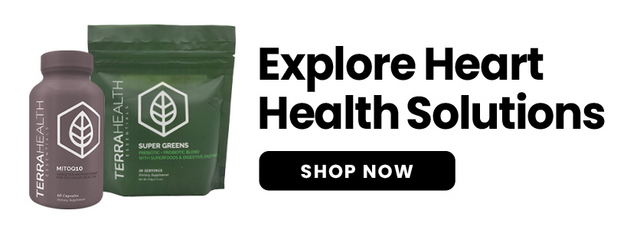How often do you think about your heart health? Despite its importance, heart health isn’t something everyone thinks about on a day-to-day basis. It’s easy to put it to the side as something to think about later, especially if you haven’t experienced any serious health concerns.
But regardless of what stage you’re at in life, making some minor tweaks to your routine can lead to significant improvements in your heart health and reduce your risk of cardiovascular diseases and related complications. Whether you’re a seasoned wellness veteran or just starting to prioritize your well-being, these small adjustments can pave the way for a healthier heart and contribute to an overall sense of well-being.
Try these 10 easy-to-follow tips to care for your heart so that it can care for you.
Regardless of what stage you’re at in life, making some minor tweaks to your routine can lead to significant improvements in your heart health and reduce your risk of cardiovascular diseases and related complications. Whether you’re a seasoned wellness veteran or just starting to prioritize your well-being, these small adjustments can pave the way for a healthier heart and contribute to an overall improved quality of life.
Try these 10 easy-to-follow tips to care for your heart so that it can care for you.
1. Take a 10-Minute Walk
You can reduce your risk of heart disease in just 10 minutes with a brisk walk. This is doable even for the most sedentary lifestyles! To further up your game, you can use a step counter app to set yourself daily targets. You don’t even need an expensive smartwatch or fitness band! Set up your counter in a few minutes using an app on your mobile device such as Apple Health for iPhones or Google Fit for Android.
2. Give Yourself a Lift
Building lean muscle mass is a great way to improve your cardiovascular health. Research shows that lifting weights for less than 60 minutes a week can reduce your risk of heart attack or stroke by up to 70%!
If you’re not sure where to start, the American Heart Association suggests incorporating strength or resistance training into your routine twice a week, alongside 150 minutes of moderate-intensity aerobic activity.
3. Watch Your Diet
If you’re allergic to adding vegetables to your dinner plate, this is the time to start. Fruit and vegetables are loaded with nutrients that support cardiovascular health, such as fiber and antioxidants.
Don’t forget to add foods rich in Omega 3 to your plate too. These fatty acids are renowned for their anti-inflammatory properties, helping to reduce blood pressure and reduce the risk of abnormal heart rhythm. You’ll find lots of Omega 3 in fatty fish like salmon, mackerel, and sardines. But don’t worry if fish isn’t your thing; chia seeds, flax seeds, and walnuts are excellent plant-based sources of this essential nutrient.
4. Don’t Skip Breakfast
A balanced breakfast full of fruits and whole grains will set you up for the day. It kick-starts your metabolism, giving your body the fuel your body needs after fasting. You’ll have more energy, improved blood sugar levels, and less chance of overeating later in the day. So, whether it’s a bowl of oatmeal topped with fresh berries, a nutrient-packed Super Greens smoothie, or some whole grain toast paired with your favorite fruits, make breakfast a non-negotiable.
5. Take a Deep Breath
The most natural thing in the world is one of the most beneficial things you can do for your heart health, and that’s to simply take a deep breath. Not only does deep breathing help with stress management – which reduces the risk of inflammation – but it also helps to lower your blood pressure and support a healthy heart.
6. Snack on Some Almonds
Nuts are nutrient-packed snacks, full of healthy fats, fiber, and antioxidants. Make them your go-to snack for lower cholesterol levels!
7. Prioritize Sleep
The importance of quality sleep is no joke. Research shows that insufficient sleep is linked to an increased risk of heart disease, so maintaining a healthy sleep pattern is a direct investment in your heart health!
8. Your Heart Needs Hydration Too
If it seems like drinking more water is a part of every health management plan, it’s because it is! The American Heart Association recommends consuming at least 8 8-ounce glasses of water a day to keep your heart healthy.
Dehydration can strain your heart and make it work harder to pump blood efficiently, so it’s important to make adequate hydration a part of your daily routine. If you don’t drink enough water at the moment, try carrying around a reusable bottle as a reminder to refill throughout the day.
Laying the Foundation for Better Heart Health
Making these minor tweaks to your routine can make a massive difference to your cardiovascular well-being. To give your heart an extra boost, you can support these lifestyle changes with a daily dose of MitoQ and Super Greens. These key supplements work together to boost your cellular health and fuel your body with essential vitamins and minerals.
Remember, looking after your heart is a lifelong commitment, and every small step you take matters.



